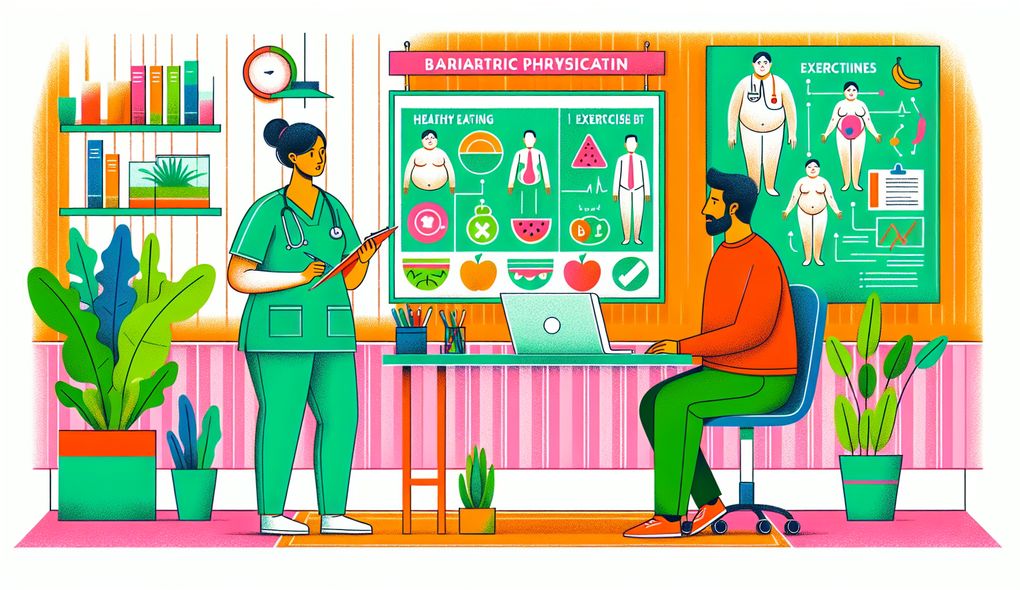Can you describe a situation where you had to handle a challenging patient?
SENIOR LEVEL

Sample answer to the question:
Yes, I can certainly describe a situation where I had to handle a challenging patient. One time, I had a patient who was very resistant to following the recommended weight loss plan. Despite my best efforts to educate and motivate them, they continuously skipped appointments, ignored dietary guidelines, and showed a lack of commitment to improving their health. It was a frustrating situation because I genuinely cared about their well-being and wanted to help them achieve their goals. However, I knew that it was important to approach the situation with empathy and understanding. I took the time to listen to their concerns and fears, addressing each one individually. I also collaborated with a nutritionist and psychologist to develop a more tailored treatment plan that would better suit the patient's needs and preferences. Through open communication and ongoing support, we were able to slowly build a stronger patient-provider relationship and make progress towards their weight loss goals.
Here is a more solid answer:
Certainly! I faced a challenging situation with a patient who was struggling to adhere to their weight loss plan. Despite my efforts to educate and motivate them, they consistently missed appointments, disregarded dietary guidelines, and seemed disengaged from their own health. It was important for me to approach this situation with empathy and understanding. I took the time to have open and honest conversations with the patient, allowing them to express their concerns and fears. Through active listening and validation of their emotions, I was able to build trust and establish a strong patient-provider relationship. I also collaborated with a nutritionist and psychologist to develop a more personalized treatment plan that considered the patient's preferences and lifestyle. We implemented small, achievable goals along with regular check-ins to keep the patient motivated. Additionally, I provided educational resources and materials to empower the patient to take control of their own health. Over time, the patient began to show more commitment and started making progress towards their weight loss goals.
Why is this a more solid answer?
The solid answer provides a more detailed explanation of the challenging situation with the patient. It includes specific actions taken, such as active listening, collaboration with other healthcare professionals, and providing educational resources. The answer also addresses all the evaluation areas mentioned in the job description. However, it could still benefit from providing more specific examples and outcomes of the actions taken.
An example of a exceptional answer:
Absolutely! Let me share a situation where I faced a particularly challenging patient and successfully navigated through the difficulties. I had a patient who had undergone bariatric surgery but was struggling with post-operative complications. They experienced severe pain, nutritional deficiencies, and emotional distress. It was a complex and delicate situation that required a multidisciplinary approach. I immediately coordinated with the surgical team to address the physical issues and ensure the patient's safety. Simultaneously, I engaged a nutritionist and psychologist to design a comprehensive plan to address the patient's nutritional deficiencies and emotional well-being. The treatment plan involved regular monitoring, adjustment of medications, dietary modifications, and therapy sessions. To foster open communication, I scheduled frequent meetings with the patient and their support system to discuss progress, address concerns, and provide education. Additionally, I facilitated a support group for bariatric surgery patients, creating a safe space for them to share their experiences and receive support. By providing personalized care, addressing the patient's specific needs, and ensuring a strong support system, we were able to navigate the challenges together and promote their overall well-being.
Why is this an exceptional answer?
The exceptional answer provides a comprehensive and detailed description of a challenging patient situation. It highlights the complexity of the case, the coordination with the multidisciplinary team, and the proactive measures taken to address physical, nutritional, and emotional aspects. The answer also mentions the creation of a support group, emphasizing the physician's leadership abilities. It fully addresses all the evaluation areas mentioned in the job description and showcases the candidate's expertise and commitment to providing exceptional care. To further improve, the answer could include specific outcomes and measurable improvements in the patient's condition.
How to prepare for this question:
- Reflect on past experiences with challenging patients and think about specific examples that highlight your empathy, communication skills, and ability to work under pressure.
- Consider the multidisciplinary approach to patient care and how you have collaborated with nutritionists, psychologists, or other healthcare professionals in the past.
- Review the bariatric surgery techniques and patient care protocols to ensure you can confidently discuss your expertise in these areas.
- Think about how you stay updated with current medical research and how you incorporate new advancements into your practice.
- Prepare examples that demonstrate your leadership abilities in guiding and inspiring a multidisciplinary team.
- Consider the emotional and psychological aspects of obesity and how you address them in your patient interactions.
What are interviewers evaluating with this question?
- Empathy and sensitivity
- Communication skills
- Ability to work under pressure
- Leadership abilities
- Commitment to continuous education

